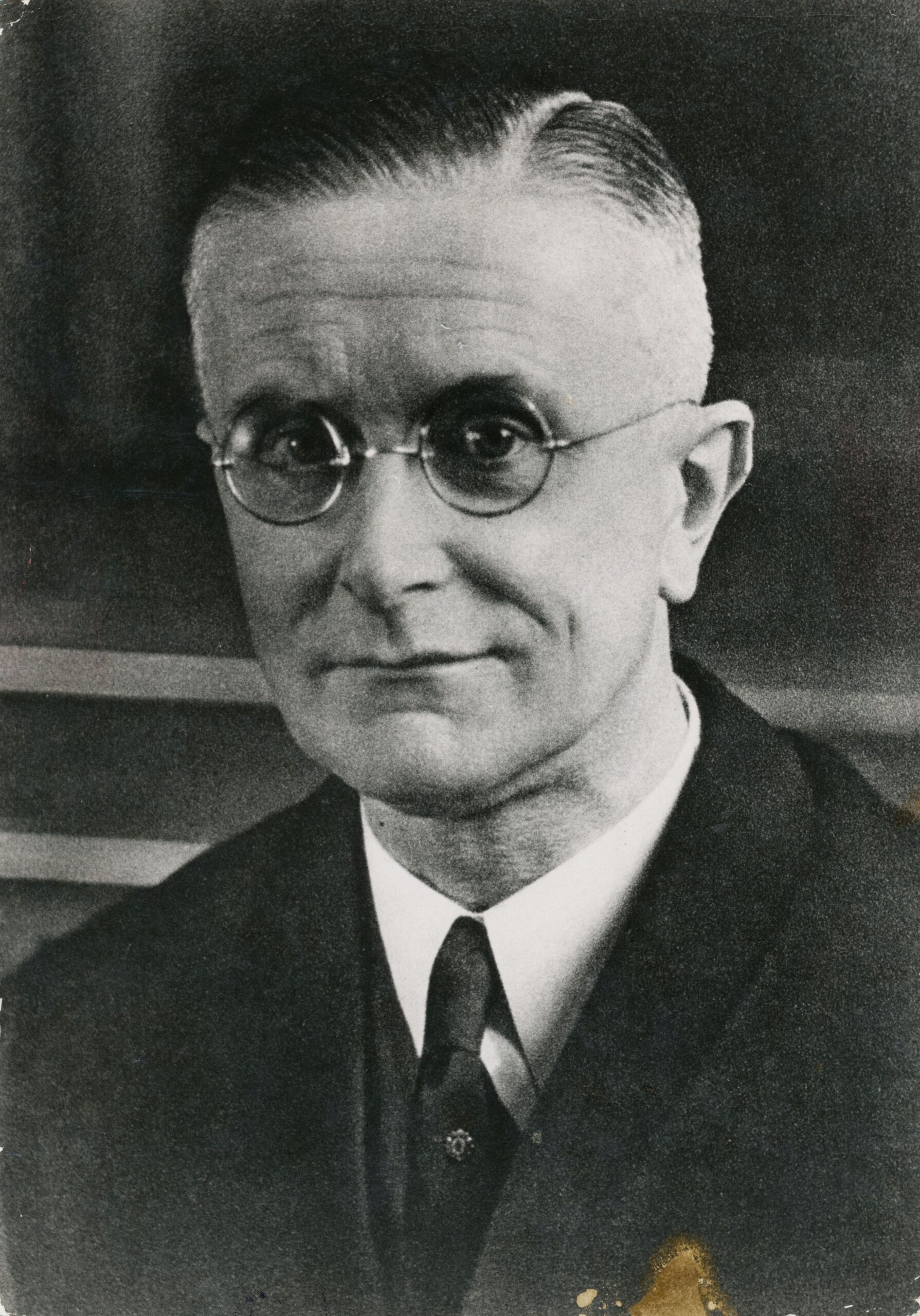When the Dutch public broadcasting organisation held a vote for the ‘Best speech of the Netherlands’ in 2015, Rudolph Cleveringa’s famous resistance speech came out as the winner, an honour for which the Leiden professor had paid a high price.
Rudolph Cleveringa was dean of the Faculty of Law of Leiden University when his Jewish colleague and friend Eduard Meijers, like other Jewish professors, was expelled from the university under pressure from the Nazis. It was the reason for the famous protest speech Rudolph gave on 26 November 1940 in front of a packed lecture hall, in which he expressed his disgust at the anti-Jewish measures and how they went against all the rules of law – his own field of study, after all.
It was a speech straight from the heart, but one with major consequences. The same evening, Rudolph, who reportedly already had a packed suitcase in his hallway at home, disappeared and was locked up in the prison of Scheveningen — commonly known as the Oranjehotel (Orange Hotel). Meanwhile, his students eagerly disseminated the speech and went on strike, which led to Leiden University being closed by the occupying forces.
After eight months of imprisonment in the Oranjehotel, Rudolph was released, but in 1944 he was imprisoned again, this time as a hostage in Camp Vught. Together with 31 other Leiden residents, he was arrested in retaliation for a failed liquidation of a member of the Dutch National Socialist Party by the city’s resistance.
In Camp Vught, he was put to work and had to register the belongings of both new prisoners and those who were released. In July 1944, after more than seven months of imprisonment, he discovered his own name on the list of prisoners who were soon to be released.
Having been only just released, Rudolph, at the request of the government in London, joined the College van Vertrouwensmannen (College of Trusted Men), a group of former politicians and representatives of the resistance that had to prevent a power vacuum with the liberation in sight. “A choice that was at least as courageous as the speech of 26 November,” noted his biographer Kees Schuyt.
After the war, Rudolph resumed his work at Leiden University until he retired in 1958. He then served in public administration for a number of years. Rudolph died in 1980 at the age of 86. In memory of the professor and his famous protest speech, Leiden University organises lectures all around the world every year on and around 26 November.
